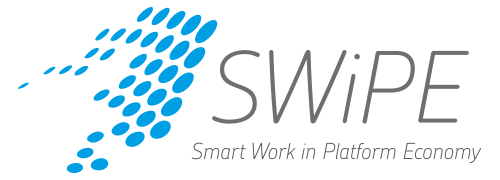The latest issue 01/2018 of Journal of Professional and Vocational Education has been published in collaboration with the research projects of Strategic Research Council’s WORK-programme. There are two articles related to SWiPE, one of which deals with company-driven vocational education and the other about a new emerging professionality in the social and health sector that is under reform at present.
The article Boundaries between education and working life vocational education organized by a company: A Case Study Kone Elevators Ltd written by Kaisa Hytönen and Anne Kovalainen examines the links and interaction between work and education in the company-driven vocational education. The study was conducted within the framework of Kone Elevators Ltd and its own industrial school. The school trains elevator engineers for Kone. The aim of the study was to analyse the capabilities and skills of the future working life what the company-driven vocational training offers, as well as how the interaction between education and the world of work is structured. In particular, research focuses on the education’s ability to take account of new challenges in changing working life.
According to the study, company-driven vocational training is able to support the development of both sectoral skills and the general capacities and skills needed in working life. It also responds quickly and flexibly to changes in working life. The study showed that there is a close link between the company and its school. Students engage early in the company, the contents of the training program are flexible according to emerging needs from the work field, and theory and practice link effectively in education. Through its own training, the company can also guarantee the availability of skilled workforce.
At best, company-driven education is able to provide flexible ways to train employees and for the individuals a good knowledge capability to build a sustainable work career. Its good practices can also be applied to other fields and broader to vocational training.
The article Professionals as authors of their work: Service advisors as navigators of changing services written by Eveliina Saari, Sari Käpykangas and Mervi Hasu discusses the professionals who have applied for new jobs and created new job descriptions for themselves. The article analyses the new emerging professional, service advisors, as an example of how professionals can be proactive in authoring their own work.
The study examined how a professional would shape new work for him/herself in a heavily changing and digitalized service system when the content of the work is not defined by the management. The subject of the study was also how the context of work, in other words, the social relations of a professional, the physical environment, and the customers’ situation in life and digital skills influence the way in which the service advisor’s work modifies.
Based on this study, three different authorships, i.e. types of service advisors were identified: the pro-active caretaker and co-creator, the sensitive service integrator and interlocutor and the digital guide and snag solver. All types of service advisors were characterised by their independent and gradual creation of their own work and job description, and they also seemed to be aware of their choices. All service advisors had created their own position “out of nowhere”, without any model from the organization or supervisor.
Eveliina Saari, Sari Käpykangas and Mervi Hasu state, among other things, that in the future organisations will need more and more employees, who are themselves active in authoring their own work and leaders of their own skills – they see where there is work undone and start doing it.
For more information, visit: https://akakk.fi/journal-professional-vocational-education/ (mainly in Finnish)
